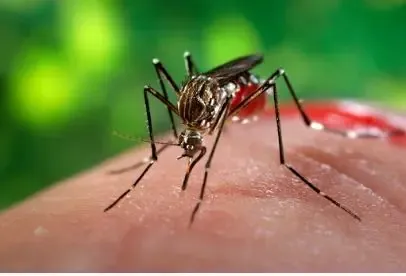Rwanda to Implement Household Testing for Malaria Prevention

Synopsis
Key Takeaways
- All household members will be tested for malaria if one is diagnosed.
- The initiative aims to reduce malaria transmission within communities.
- Asymptomatic individuals will receive treatment to prevent symptom onset.
- Rwanda has significantly decreased malaria cases in recent years.
- Malaria remains a public health concern despite progress.
Kigali, April 22 (NationPress) Rwanda is set to launch an innovative malaria prevention initiative whereby every member of a household will undergo testing if one individual is diagnosed with the illness, according to a health official.
This strategy is designed to diminish malaria transmission within the community, and by reducing transmission, it acts as a preventive measure, remarked Epaphrodite Habanabakize, senior officer for malaria prevention at the Rwanda Biomedical Centre (RBC), during an interview with national broadcaster Rwanda TV on Monday.
Initially, the strategy will be implemented in the capital city, Kigali, before it is expanded to additional districts across the country.
Should an individual visit a health facility and test positive for malaria, a health worker will conduct home visits to test all household members. Those who test positive but exhibit no symptoms — even if they carry the malaria parasite — will receive malaria treatment, he clarified.
Even in the absence of symptoms, it is possible to be infected. Administering treatment in these cases is crucial to prevent the development of symptoms and further transmission, he explained, noting that by addressing asymptomatic cases, the strategy seeks to disrupt the infection cycle by preventing mosquitoes from biting infected individuals and thus spreading the parasite, as reported by Xinhua news agency.
Rwanda has seen a notable decrease in malaria cases — from 4.8 million to 620,000 cases between the fiscal years 2016/2017 and 2023/2024. Malaria-related fatalities also saw a significant decline during the same period. However, malaria continues to be a public health challenge, with 802,428 uncomplicated malaria cases registered in 2024, according to data from RBC.
In 2020, Rwanda introduced drone-assisted larvicide spraying in marshy regions to complement indoor residual spraying efforts aimed at targeting mosquito breeding sites.
The World Health Organization defines malaria as a potentially fatal disease transmitted to humans via specific types of mosquitoes. It predominantly affects tropical regions and is both preventable and treatable.
The infection stems from a parasite and does not spread from one person to another.
Symptoms may range from mild to severe, with mild symptoms including fever, chills, and headaches. Severe symptoms can include fatigue, confusion, seizures, and difficulty breathing.
Infants, children under 5 years old, pregnant women and girls, travelers, and individuals with HIV or AIDS are at an elevated risk of severe infection.
Malaria prevention strategies include avoiding mosquito bites and using appropriate medications. Treatments are effective in preventing mild cases from progressing to severe illness.









